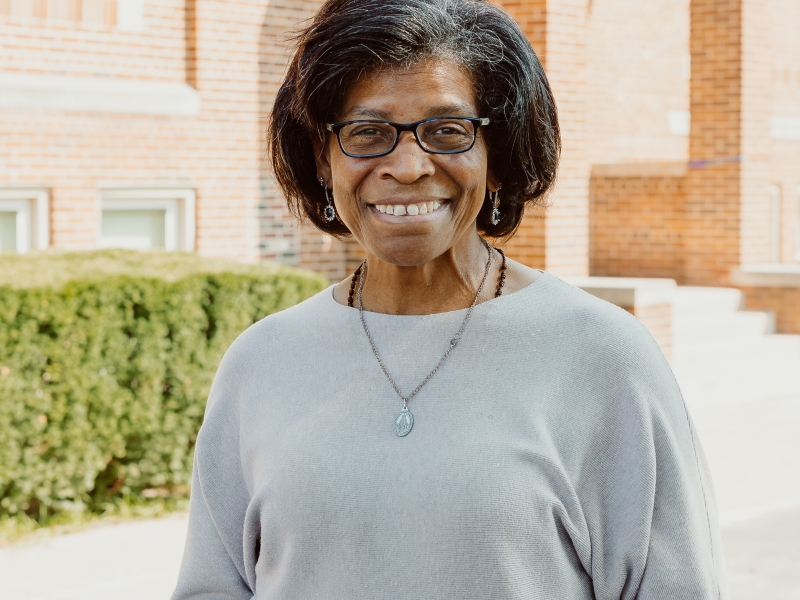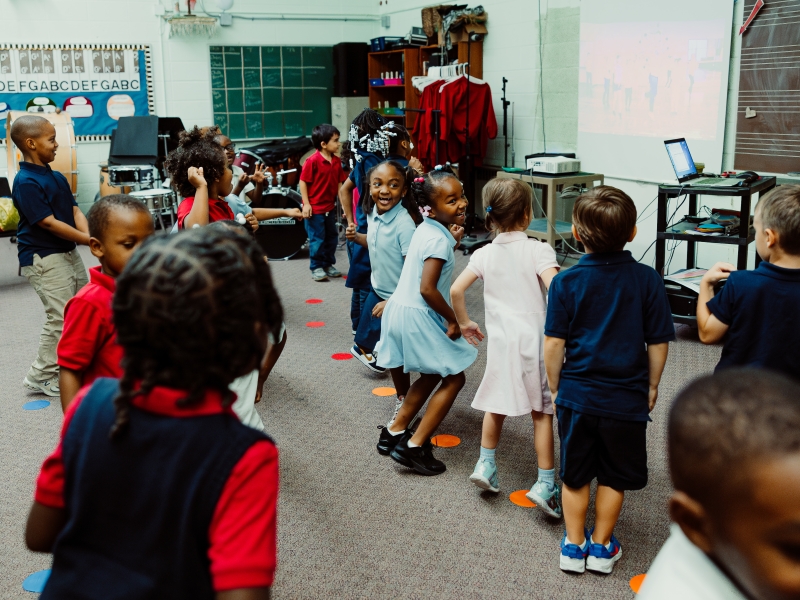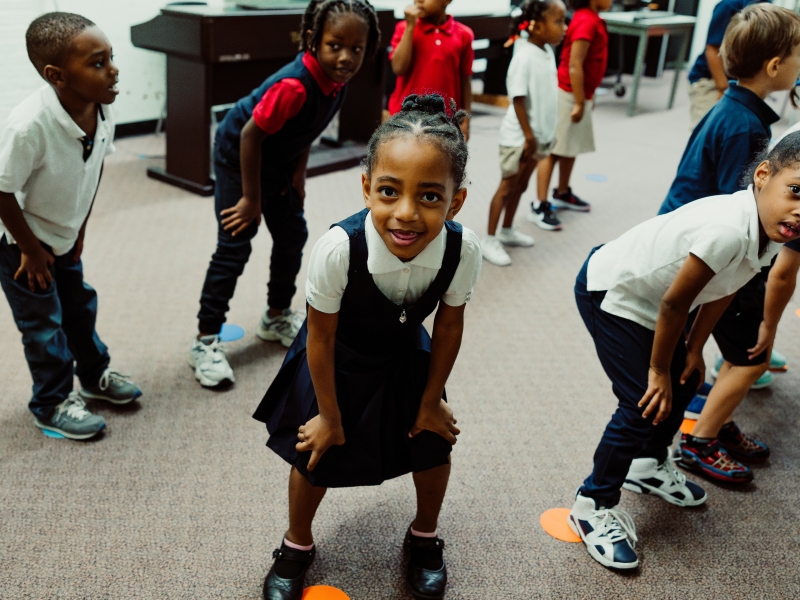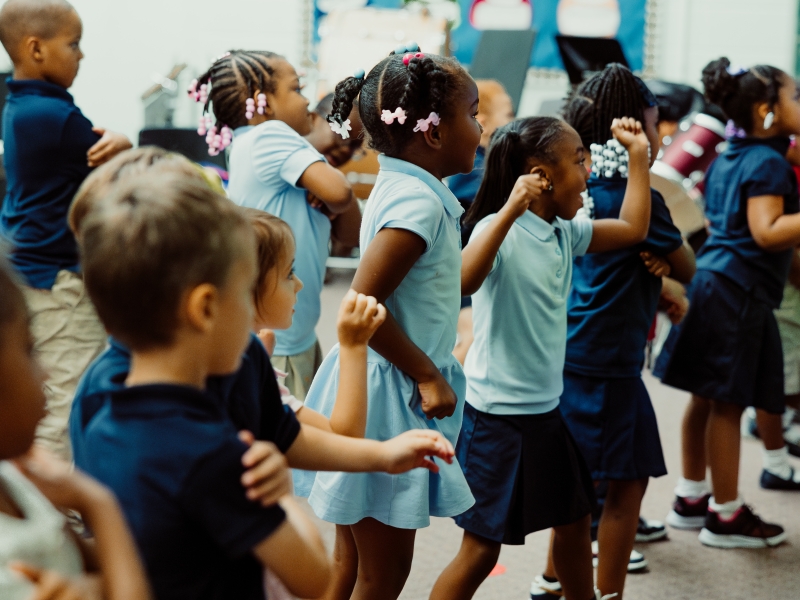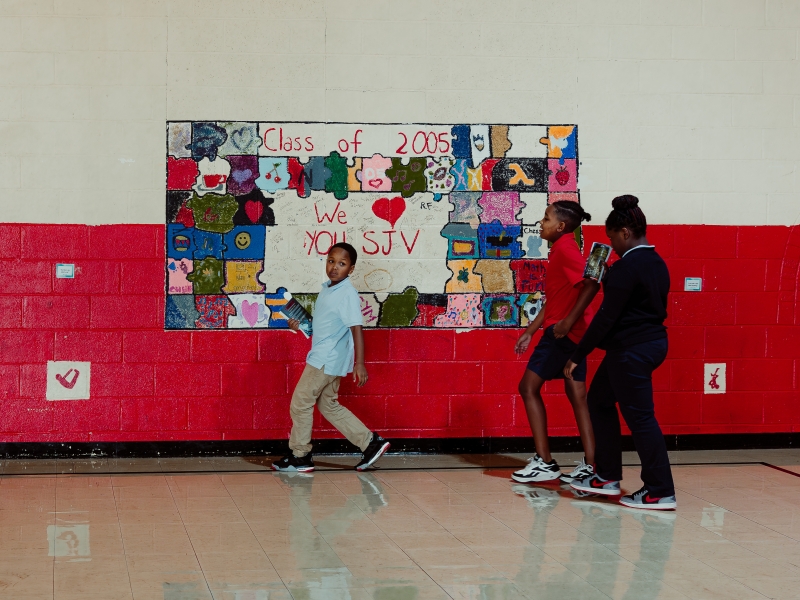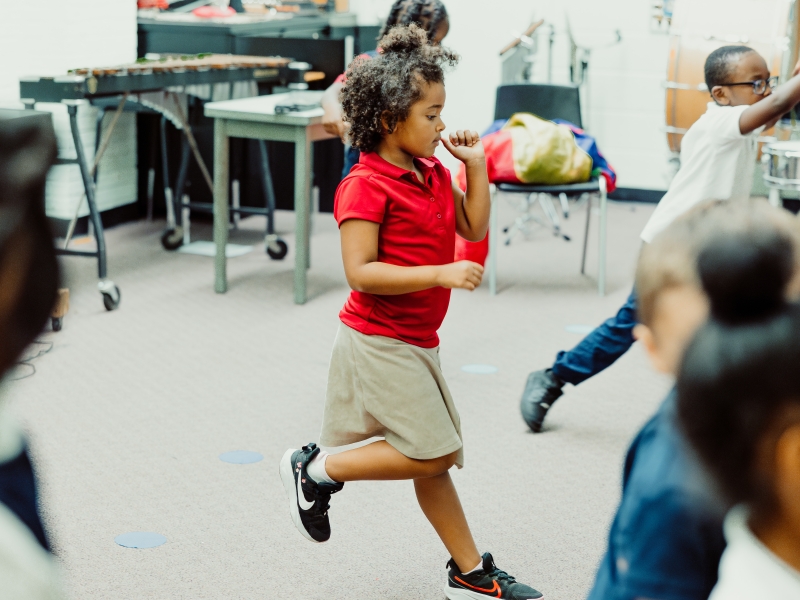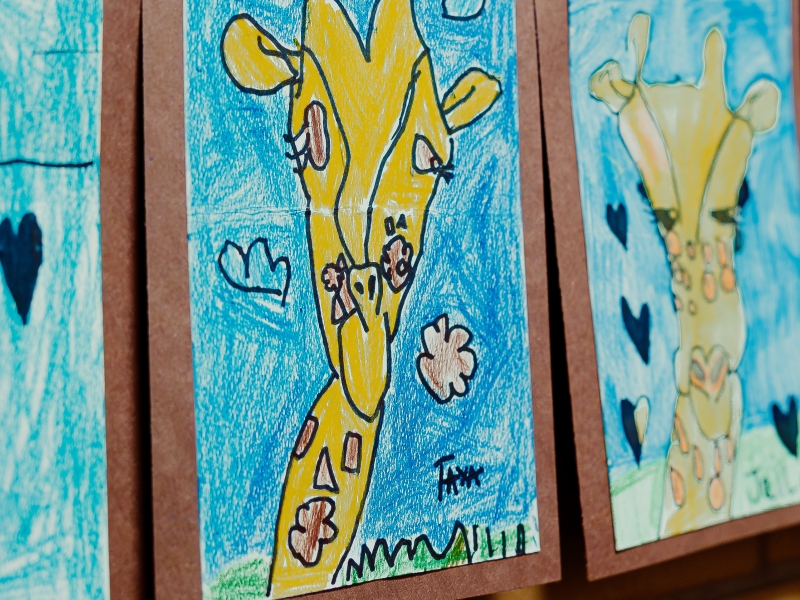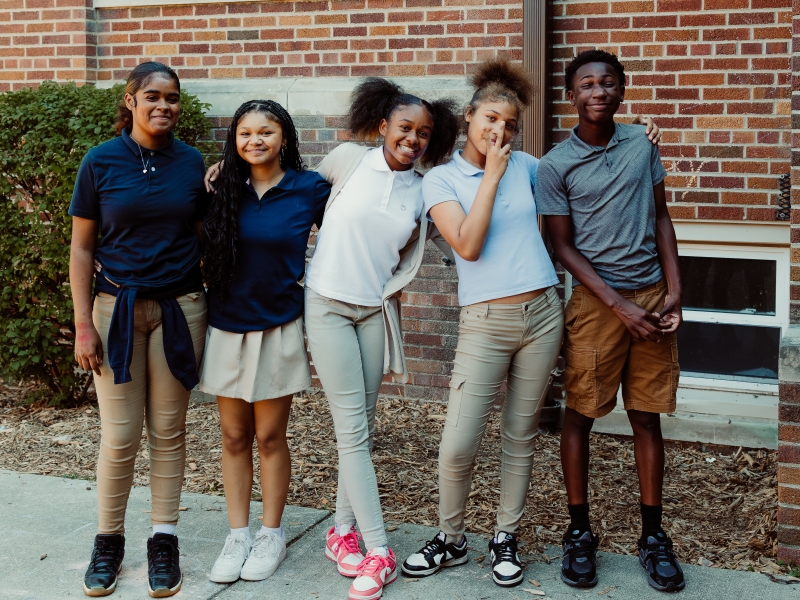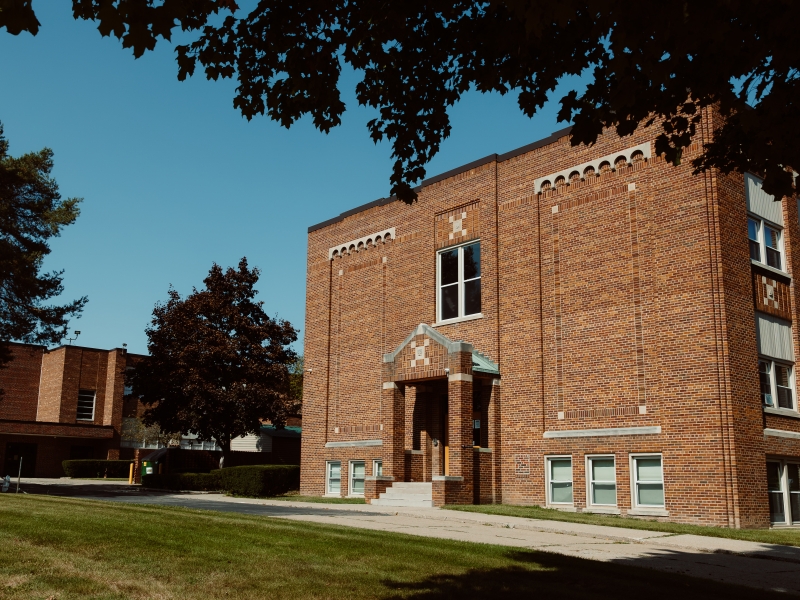
Nestled in a city rich with complex history, Saint John Vianney Catholic School embraces its mission to foster understanding, unity, and social justice, writes Stephanie Van Koevering at the beginning of Black Catholic History Month 2024.
“When our school was founded [in 1948], there was more wealth in the city,” shares Dr. Theresa Marshall, pictured below, who has served as principal since 2018. “As life evolved and the auto industry left, the people who could move out did. Some remained who had the wealth and family support to weather the changes, but many others who couldn’t leave, stayed here without resources.”
The result is that many residents of Flint grapple with poverty, joblessness, hunger, addiction, and crime. The impact on the youth? Trauma, homelessness, anxiety, educational deficits, and post-traumatic stress related to environmental issues.
“Some students come here with literally no place to go after they leave school for the day,” Marshall reflects. “So I pray a whole lot. And I do a lot of networking to find connections in and around the city and outside the city who can help the parents and children.”
Through innovative partnerships with local philanthropic, civic, and social service organizations, along with the Servants of God’s Love, a religious community committed to outreach in Flint, Marshall has tirelessly worked to develop a vast array of services and support for her students.
“We network both inside and outside the Catholic community, working on getting more grants to deliver the resources our students need,” she explains. “And it’s making a difference.”
But the greatest resource of all is the love of God.
“We do adoration here, because you’ve just got to get these kids in front of Jesus,” she emphasizes. “He heals the heart. We use our religion classes for one-on-one conversations about what they’re made for and why they’re here. I often tell kids, ‘You don’t realize how deep and precious you are as human beings.’ It’s easy to think you can just talk to someone to make hurt, fear, and pain go away. But when your heart is broken and you’re young, you can’t always identify that hurt until something triggers it. Jesus knows the depths of the heart, and as his disciples, we love, serve, and become his heart and hands for healing.”
The entire Saint John Vianney team works hard to give children a strong identity in Christ. They reinforce the integral image of God that resides within each child, reminding them they are important and valuable. Regardless of what they face, they are wanted, needed, loved, and enough.
This commitment is further supported by effective therapy, opportunities for prayer, engaging school events, and collaborations with Powers Catholic High School. Students learn the joy of giving back through outreach programs such as connecting with Saint Luke Center, where they donate canned goods, and locally where students have become pen-pals to shut-ins, instilling the value of sharing — even with what little they have.
“The messages get through. We’ve been in school for just four weeks, and we’ve already had three baptisms,” Marshall says. “God is moving them.”
Notably, many students at Saint John Vianney have connections to the school through their parents, who once attended themselves.
“Once these folks have children of their own, they tend to remember something that worked well for them when they were young and come back,” says Marshall. “They begin to value the structure, the prayer, the rituals. They often tell me, ‘That was a way of life that was really good for me,’ right before admitting they ‘kind of left Church for a little while.’ They want to restore the goodness and faith they experienced, and they want their children to have that, too.”
This reconnection to faith and tradition is central to the school’s mission, especially as it intersects with the pressing racial issues within Flint. Saint John Vianney is positioned at the crossroads of economic hardship and racial inequities, creating a dual role as both an Catholic academic institution and a center for greater faith and racial healing.
Marshall is uniquely qualified for this endeavor due to her own background. “I grew up in Baltimore, where my parents were heavily involved in the civil rights movement in Washington, D.C., when Dr. King was still alive,” she recalls. “At that time, there was a deliberate conversation about racism, which instilled a sensitivity to how we speak to and care for each other.”
While aware of progress made, Marshall observes a troubling shift in how racism is discussed today. “Now, conversations about racism aren’t as discerning,” she says. “It seems that some people assume there’s no racism anymore. This allows seemingly unaddressed racist behavior to proliferate, often without the person’s awareness.”
Marshall has clear advice for Flint’s young people, many of whom have encountered racist remarks or acts. “I always tell them, ‘God will hold each of us accountable for our decisions. Say what you need to say and walk away.’ It’s vital to demonstrate integrity, right behavior, and the highest level of character formation.” She teaches that what others say does not define who they are. “God says, ‘You are precious in my eyes and honored.’ (Is. 43:4) Don’t allow unkind words to dictate your self-worth or provoke retaliation. Respond with mercy, integrity, and prayer.”
Thus, Saint John Vianney’s mission continues to empower generations, guiding Flint’s children to rise above adversity with faith, resilience, and the profound understanding that they are formed in the image of God.
* Want to know more about Saint John Vianney Catholic School? Click here: https://www.sjvkids.org/

